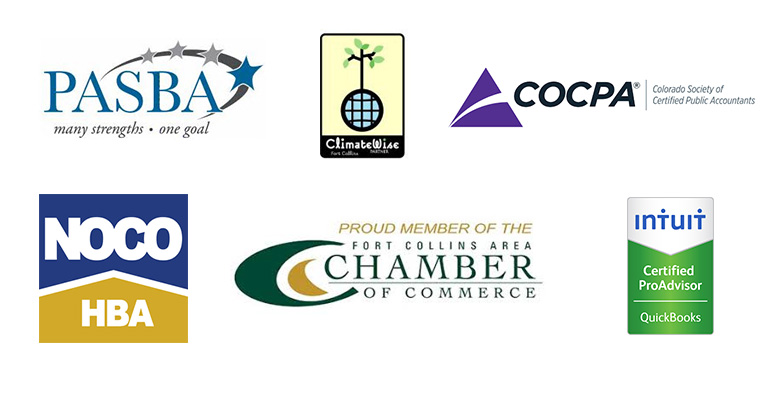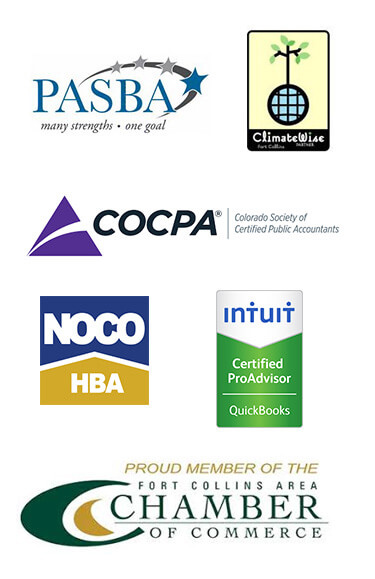Restaurant Accounting
Restaurants and food services make up a large portion of local businesses, generating millions in combined revenue each year. While local brewpubs and eateries are simply one type of small business, how they handle taxes is completely different than many other establishments. If you are a new restaurant owner or are thinking of opening a restaurant, it’s critical that you understand your tax obligations and how to maximize your spending.
There are different types of taxes that restaurateurs need to be aware of, and stay on top of. That’s right, in this industry, taxes aren’t something you can put off until April every year. Restaurant taxes need to be addressed with as much attention as biweekly payroll and food ordering!
Here are a few different tax tips for restaurant owners:
Food and Beverage Costs
Since food and beverage costs make up a huge proportion of restaurant expenses, it’s important to look for tax write-offs or other incentives in this area. An experienced restaurant CPA will be able to help you here.
Employee Benefits
The benefits you provide to employees may be eligible for tax write-offs. These include routine things like sick leave, health expenses, and vacation pay, but also things like meals provided to employees.
Equipment Depreciation
Restaurants are often hard on equipment and furniture, causing accelerated wear and tear. Ask your accountant about depreciation on this year’s taxes, to recoup costs from worn-out tables, chairs, beverage equipment, decor, glassware, and more.
Worker Tax Credits
If your company employs certain classes of individuals, like veterans or those with disabilities, you may qualify for employee tax credits. Check your payroll and don’t forget to utilize these credits if you have them.
Charitable Donations
Many restaurants donate food or cash to local charities, and if you do so, this is important to account for on your taxes. The cost of the food, as well as storage and transportation, may be deductible.
Energy-Efficient Upgrades
For commercial kitchens, upgrading to Energy Star equipment can not only save money in energy costs, but also may be eligible for rebates, tax deductions, and other incentives. Check with your accountant or look online for the latest tax credits.
Restaurant taxes go far beyond the usual income tax, sales tax, and licensing requirements. These tips can help you make the most out of your food services business. Want more help to make your restaurant a success? Reach out to us at S.J. Wick & Associates today.
Restaurant Accounting
Restaurants and food services make up a large portion of local businesses, generating millions in combined revenue each year. While local brewpubs and eateries are simply one type of small business, how they handle taxes is completely different than many other establishments. If you are a new restaurant owner or are thinking of opening a restaurant, it’s critical that you understand your tax obligations and how to maximize your spending.
There are different types of taxes that restaurateurs need to be aware of, and stay on top of. That’s right, in this industry, taxes aren’t something you can put off until April every year. Restaurant taxes need to be addressed with as much attention as biweekly payroll and food ordering!
Here are a few different tax tips for restaurant owners:
Food and Beverage Costs
Since food and beverage costs make up a huge proportion of restaurant expenses, it’s important to look for tax write-offs or other incentives in this area. An experienced restaurant CPA will be able to help you here.
Employee Benefits
The benefits you provide to employees may be eligible for tax write-offs. These include routine things like sick leave, health expenses, and vacation pay, but also things like meals provided to employees.
Equipment Depreciation
Restaurants are often hard on equipment and furniture, causing accelerated wear and tear. Ask your accountant about depreciation on this year’s taxes, to recoup costs from worn-out tables, chairs, beverage equipment, decor, glassware, and more.
Worker Tax Credits
If your company employs certain classes of individuals, like veterans or those with disabilities, you may qualify for employee tax credits. Check your payroll and don’t forget to utilize these credits if you have them.
Charitable Donations
Many restaurants donate food or cash to local charities, and if you do so, this is important to account for on your taxes. The cost of the food, as well as storage and transportation, may be deductible.
Energy-Efficient Upgrades
For commercial kitchens, upgrading to Energy Star equipment can not only save money in energy costs, but also may be eligible for rebates, tax deductions, and other incentives. Check with your accountant or look online for the latest tax credits.
Restaurant taxes go far beyond the usual income tax, sales tax, and licensing requirements. These tips can help you make the most out of your food services business. Want more help to make your restaurant a success? Reach out to us at S.J. Wick & Associates today.
Restaurant Accounting
Restaurants and food services make up a large portion of local businesses, generating millions in combined revenue each year. While local brewpubs and eateries are simply one type of small business, how they handle taxes is completely different than many other establishments. If you are a new restaurant owner or are thinking of opening a restaurant, it’s critical that you understand your tax obligations and how to maximize your spending.
There are different types of taxes that restaurateurs need to be aware of, and stay on top of. That’s right, in this industry, taxes aren’t something you can put off until April every year. Restaurant taxes need to be addressed with as much attention as biweekly payroll and food ordering!
Here are a few different tax tips for restaurant owners:
Food and Beverage Costs
Since food and beverage costs make up a huge proportion of restaurant expenses, it’s important to look for tax write-offs or other incentives in this area. An experienced restaurant CPA will be able to help you here.
Employee Benefits
The benefits you provide to employees may be eligible for tax write-offs. These include routine things like sick leave, health expenses, and vacation pay, but also things like meals provided to employees.
Equipment Depreciation
Restaurants are often hard on equipment and furniture, causing accelerated wear and tear. Ask your accountant about depreciation on this year’s taxes, to recoup costs from worn-out tables, chairs, beverage equipment, decor, glassware, and more.
Worker Tax Credits
If your company employs certain classes of individuals, like veterans or those with disabilities, you may qualify for employee tax credits. Check your payroll and don’t forget to utilize these credits if you have them.
Charitable Donations
Many restaurants donate food or cash to local charities, and if you do so, this is important to account for on your taxes. The cost of the food, as well as storage and transportation, may be deductible.
Energy-Efficient Upgrades
For commercial kitchens, upgrading to Energy Star equipment can not only save money in energy costs, but also may be eligible for rebates, tax deductions, and other incentives. Check with your accountant or look online for the latest tax credits.
Restaurant taxes go far beyond the usual income tax, sales tax, and licensing requirements. These tips can help you make the most out of your food services business. Want more help to make your restaurant a success? Reach out to us at S.J. Wick & Associates today.




